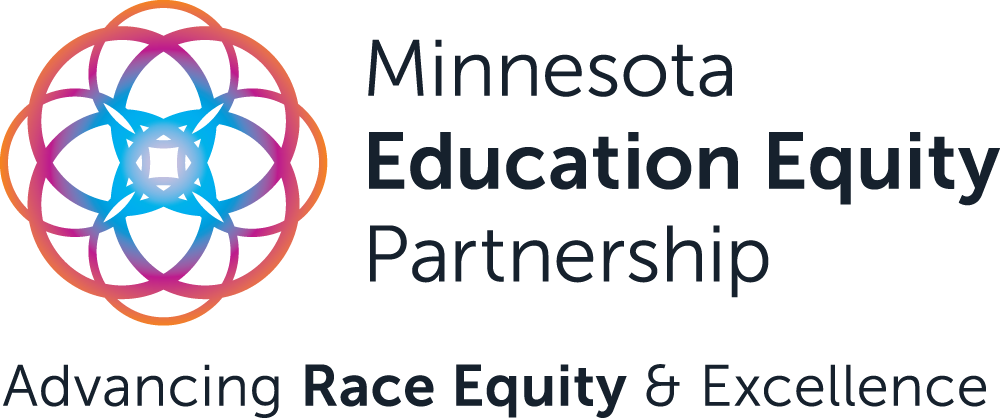
Multilingualism must be a right and resource in Minnesota’s education system
Over the past four years, the MnEEP Emerging Multilingual Learners (EML) Network has engaged in critical activities to promote multilingualism as an asset and academic excellence for Minnesota’s EMLs.
Research shows that students of color and Indigenous students (POCI) are more successful when educators support and embrace their heritage and home languages.
Promoting multilingualism is vital for the success of Minnesota’s Black, Latinx, Asian, Indigenous, and growing immigrant communities—and it’s vital for the success of Minnesota.
The EML Network held numerous sessions this past year with statewide partners and families of EML students to develop, analyze, and advocate for critical policies that advance multilingualism as a right and resource and support academic excellence for Minnesota EMLs.
Two bills were developed out of these essential partnerships and engagement sessions and later introduced by the Minnesota House Education Committee on Policy: HF 3580 and SF 3369
Major components of the two bills include:
- an increase in funding for EL students;
- special consideration for students with limited or interrupted formal education (SLIFE);
- the creation of an EL parent and community advisory council; and
- the opportunity for general education teachers and administrators to be better prepared for their work with Minnesota’s multilingual students.
These bills made it through the conference committees but ultimately were not passed in the House and Senate.
This crucial work is ongoing.
The MnEEP EML Network and statewide partners will continue to advocate for these critical policies this upcoming 2022-23 Minnesota Legislative session.
And the EML Network will continue to mobilize and advocate for equitable E-12 educational policy and practices for EMLs; positive narratives of multilingualism and culture; and increased investments in effective EL and language programs.
The following principles ground the EML Network:
- Recognizing that multilingualism and multiculturalism and potential future earnings are lost when the US education system historically ignores and discounts English Learner students’ home language and culture and assumes their educational needs are the same as a monolingual child;
- Building on and meaningfully using multilingualism to enhance English language development, academic achievement, and persistence in schooling while supporting EML students’ social-emotional and cognitive development;
- Recognizing and activating authentic, equitable, and deep community engagement is necessary to ensure that systemic and school-specific EL and language department plans and programs are responsive, relevant, and transparent to families of EML students;
- Partnering with and developing awareness and commitment so that Minnesota teachers and education leaders have quality preparation, professional development, and curriculum support in multilingualism to meet the higher linguistic and academic goals and social-emotional development needs of EMLs.
The role of the EML Network is to:
- Promote the use of students’ linguistic skills as a positive asset contributing to their success;
- Mobilize communities to protect and promote access to quality education for EMLs;
- Observe and shepherd EML policy implementation: LEAPS Act & ESSA;
- Build public will through sharing new and emerging knowledge: quality programs/models, data, funding;
- Develop leadership within communities of color: family power amplification and “accompaniment”; and
- Advise state and national policy makers: bring representatives to locales, write op-eds, and activate statewide advocacy.
In 2022-23, the EML Network will continue pursuing the following priorities, aligned to MnEEP’s strategic work plan:
- Conduct family engagement for EML equity and excellence per the Mortenson Grant proposal deliverables;
- Maintain the EML Network and bimonthly meetings;
- Build an EML Toolkit to provide resources for EML and EL educators, leaders, families, and advocates;
- EL national policy: maintain a connection to MPI national policy progress on EL and immigrant learners;
- Engage in EML policy advocacy-local state policy work for the fidelity of LEAPS implementation and emerging distance learning issues specific to EML’s; and
- Coordinate and lead a statewide EML / LEAPS convening, briefing, and/or formal hearing (partnership with the Coalition of Asian American Leaders (CAAL) and the Migration Policy Institute (MPI).
Join us
MnEEP is seeking new members to engage in the EML Network’s critical priorities for advancing statewide policies that support multilingualism as an asset and academic excellence for EMLs. Members of the EML Network include educators, administrators, researchers, and impacted community members.
Please contact Leiataua Dr. Jon Peterson at: jpeterson@mneep.org to learn more about the MnEEP EML Network. MnEEP needs your partnership, and we would be thrilled to have you join us in this critical campaign to advance race equity and educational excellence for Minnesota EMLs.

